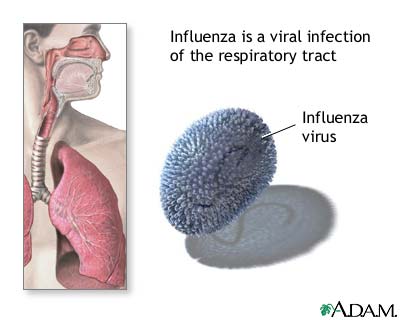
Southwest Nebraska Public Health Department (SWNPHD) is offering the Live Attenuated Influenza Vaccine (LAIV or nasal spray influenza vaccine) at its office at 404 West 10th Street in McCook, and during flu shot clinics this flu season.
Live Attenuated Influenza Vaccine (LAIV or nasal spray influenza vaccine) is a vaccine made with live, weakened viruses that cannot grow at normal body temperature and is given via a nasal sprayer.
This vaccine was approved for seasonal influenza viruses in 2003 and tens of millions of doses of the vaccine have been given in the United States.
“Adults as well as kids are opting for the nasal spray over the traditional injections for their annual flu shots, “states Myra Stoney, Director of SWNPHD. “Some adults have stated that nasal spray is the only way they want to receive their influenza vaccination.”
What are the risks from Live Attenuated Influenza Vaccine – LAIV (nasal spray?)
A vaccine, like any medicine, could possibly cause serious problems, such as severe allergic reactions. the risk of a vaccine causing serious harm, or death, is extremely small.
Live influenza vaccine viruses very rarely spread from person to person. Even if they do, they are not likely to cause illness. LAIV is made from weakened virus and does not cause influenza. the vaccine can cause mild symptoms in people who get it.
“According to the Center for Disease Control (CDC): the most common side effects from flu shots have been soreness, redness, or tenderness where the shot was given; fever; and aches, states Kelli Pachner, Public Health Nurse at SWNPHD.
“Some people, who have gotten the nasal-spray flu vaccine, in use over the past seven years, have had runny nose, cough, or nasal congestion. neither the flu shot nor the nasal-spray vaccine can give you the flu.”
The CDC also has this to say regarding who can receive the nasal spray form of the vaccine, “The nasal-spray vaccine (LAIV) is approved for use in healthy people two to 49 years of age.
Nearly all healthy, non-pregnant health care workers, may receive LAIV if eligible, including those who come in contact with newborn infants (e.g., persons working in the neonatal intensive care unit, or NICU), pregnant women, persons with a solid organ transplant, persons receiving chemotherapy, and persons with HIV/AIDS.”
Some children and adolescents two-17 years of age have reported the following symptoms with the nasal spray
• runny nose, nasal congestion or cough
• headache and muscle aches
• abdominal pain or occasional vomiting or diarrhea
Some adults 18-49 years of age have reported the following symptoms with the nasal spray
• runny nose or nasal congestion
• cough, chills, tiredness/weakness
Mild problems associated with the injection (all ages):
• soreness, redness, or swelling where the shot was given
• hoarseness; sore, red or itchy eyes; cough